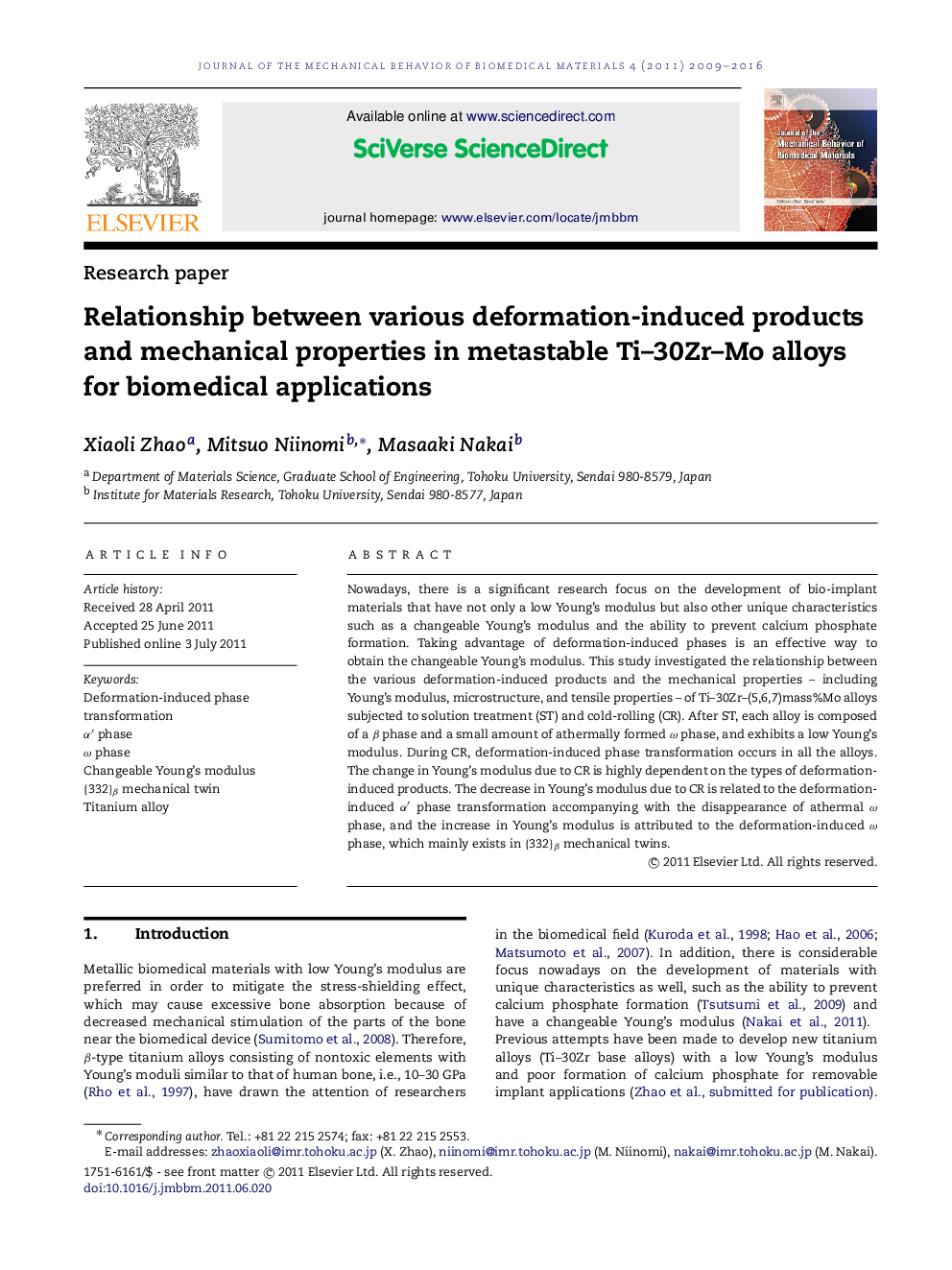| Article ID | Journal | Published Year | Pages | File Type |
|---|---|---|---|---|
| 7209567 | Journal of the Mechanical Behavior of Biomedical Materials | 2016 | 8 Pages |
Abstract
Nowadays, there is a significant research focus on the development of bio-implant materials that have not only a low Young's modulus but also other unique characteristics such as a changeable Young's modulus and the ability to prevent calcium phosphate formation. Taking advantage of deformation-induced phases is an effective way to obtain the changeable Young's modulus. This study investigated the relationship between the various deformation-induced products and the mechanical properties-including Young's modulus, microstructure, and tensile properties-of Ti-30Zr-(5,6,7)mass%Mo alloys subjected to solution treatment (ST) and cold-rolling (CR). After ST, each alloy is composed of a β phase and a small amount of athermally formed Ï phase, and exhibits a low Young's modulus. During CR, deformation-induced phase transformation occurs in all the alloys. The change in Young's modulus due to CR is highly dependent on the types of deformation-induced products. The decrease in Young's modulus due to CR is related to the deformation-induced αⲠphase transformation accompanying with the disappearance of athermal Ï phase, and the increase in Young's modulus is attributed to the deformation-induced Ï phase, which mainly exists in {332}β mechanical twins.
Related Topics
Physical Sciences and Engineering
Engineering
Biomedical Engineering
Authors
Xiaoli Zhao, Mitsuo Niinomi, Masaaki Nakai,
